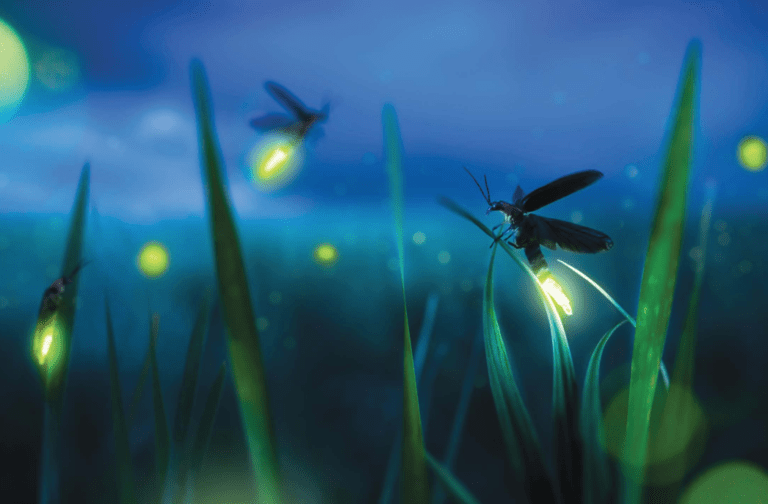 By Marek Zabrinskie
By Marek Zabrinskie
Of all the animals on earth, few are more captivating than the hummingbird. I recently filled a hummingbird feeder behind the Rectory and look forward to seeing hummingbirds dart, dip and feed throughout the coming months.
In his book One Long River of Song, Brian Doyle notes that the hummingbird’s heart is the size of an eraser. It beats ten times per second. The first explorers to visit the Americas called them joyas voladoras or flying jewels for hummingbirds were found only in the Americas. Today, there are over three hundred species of them humming, zipping and zooming about.
Each hummingbird visits a thousand flowers a day. They can dive at sixty miles an hour as well as fly backwards. A hummingbird can fly for five hundred miles without pausing to rest.
Doyle notes that when they rest, they come close to death, especially on frigid nights or when they are starving and their race-car like hearts nearly come to a halt, barely beating their wings. If they do not soon find something sweet, their hearts will soon grow cold and they will cease to be. Hummingbirds are marvelous examples of God’s creation.
Likewise, human beings are remarkable feats of creation. Each of us comes into being when just one sperm out of three hundred million or more finally reaches the ovum, some eighty-five thousand times its own size.
Within two months we are an inch long. We weigh less than a fifth of an ounce and all of our genetic make-up has already been determined. Our genome sequence carries instructions to the two hundred or more types of cells necessary to generate our skeletal, muscular, circulatory, reproductive, digestive, urinary, and respiratory systems.
When we are born, we have nearly fifty trillion different cells within our bodies, all inter-relating to keep us alive, healthy and functioning, and all of these cells constantly die. Their lifespan ranges from three weeks to three months, and they are constantly replaced.
Each cell carries within it the instructions for one hundred thousand genes. In sum, each of us is a living miracle. If we are in search of the miraculous, we need look no further than ourselves and those around us. The miracle of it all is that we were all designed by God to experience joy.
In John’s Gospel, Jesus says, “I speak these things in the world so that they may have my joy complete in themselves” (John 17:!3). Elsewhere Jesus told his followers, “I came that they may have life, and have it abundantly” (John 10:10).
Despite having so much in life, many of us odd feel discontent. Some of the people that I know who have the most things are deeply unhappy. They are not experiencing abundant life that Jesus came to bring. Where might they turn to find answers?
I would suggest that a good place to start is Psalm 1, for it is a great spiritual compass that can guide us towards happiness and joy. Jesus knew this psalm by heart.
The first and most important word in Psalm 1 is the word “happy” or “blessed.” This word and this psalm serve as a prologue to the entire Psalter – the collection of 150 prayer poems that are the only part of the Bible completely reproduced in the Episcopal Book of Common Prayer.
The psalms are a key part of the daily liturgical office. They have been chanted in their entirety each week by Benedictine monks since the year 500 A.D. Long before that, St. Anthony of the Desert recited the entire Psalter each day by heart.
Biblical scholars believe that Psalm 1 was written last and serves as a key for understanding all the psalms. It reminds us of the purpose of all the psalms and of all revelation is to lead us to joy rather than shackle us with remorse or guilt.
The Psalter is complex. It is full of effervescent hymns of praise and quiet assertions of trust, placed side by side with bitter laments, cries for vengeance, and ruminations on the absence of God, when God is most needed. Taken as a whole, they are a form of wisdom literature meant to steer us toward a blessed life. The author of Psalm 1 writes,
Happy are those who do not follow the advice of the wicked,
or take the path that sinners tread,
or sit in the seat of scoffers;
but their delight is in the law of the Lord,
and on his law they meditate day and night… (Psalm 1:1-2)
Right from the beginning, a sharp contrast between the righteous and the wicked, noting the fruitfulness of the righteous person’s life led in community and the empty lives of the wicked.
This little verse is densely populated with “wicked,” “sinners” and “scoffers.” Nothing escapes God. The righteous is upheld in the worshipping community while the wicked perish. I encourage you to read Psalm 1 each day for a month. See how it transforms you spiritually.
Just as God designed the hummingbird to visit one thousand flowers a day, fly backwards and dive at sixty miles as hour, God designed us to experience happiness.
Like the hummingbird, we are marvelously made. God designed us to discover happiness and be blessed as we meditate slowly each day on Scripture to glean the nutrients of God’s Word like a hummingbird drinking nectar so that our families and we may grow spiritually strong.





